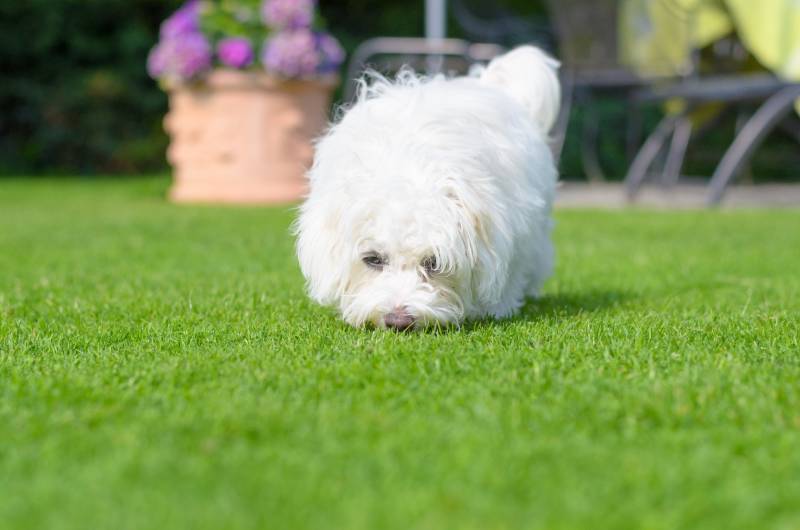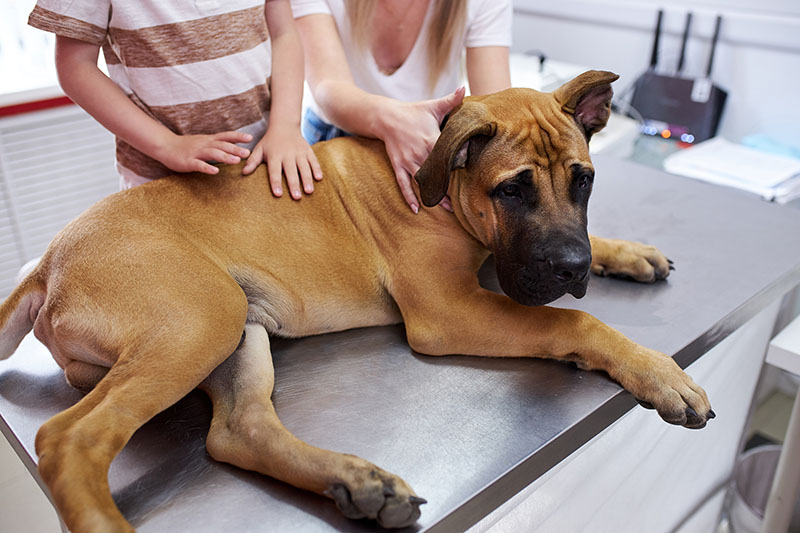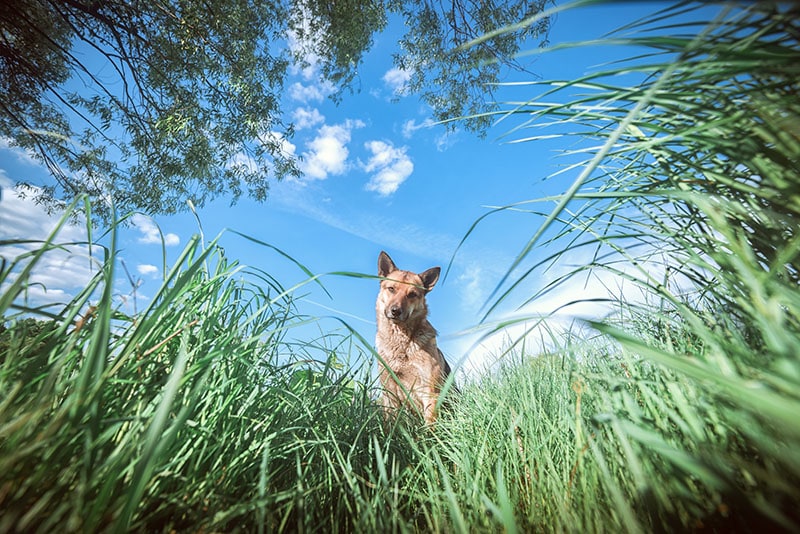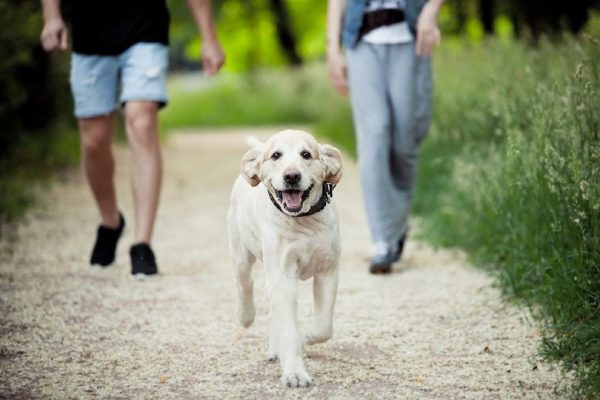In this article
View 4 More +Grass allergies are common in dogs and are caused by grass pollen. The pollen floats in the air, so dogs do not need to be physically in the grass for their allergies to be triggered.
Allergy attacks tend to occur more often in fall and spring when pollen is more abundant due to the variation of seasonal grass species. However, more sensitive dogs can have grass attacks all year.
Grass allergies can occur at any age and in any dog breed. Nevertheless, most dogs exhibit grass allergies after 1 year of age due to previous exposure to allergens (pollen), and some breeds are more prone to them than others, such as the German Shepherd and the Golden Retriever. Although the clinical signs can cause your dog discomfort, grass allergies are rarely life-threatening.

What Are Grass Allergies in Dogs?
An allergic reaction occurs when the immune system determines a non-harmful substance (allergen) in the body’s environment to be a threat. For example, if your dog plays in a certain type of grass (e.g., ryegrass), and their immune system sees this grass as a threat, an allergic reaction will occur. Other species of grass that can cause allergies in dogs are:1
- Bermuda
- Fescue
- Alfalfa
Pollen allergies can be caused by weeds, such as ragweed or pigweed.
Certain dog breeds are more sensitive and prone to allergies and allergic skin reactions produced by grass, including:
The predisposition to grass allergies is also influenced by geographical location.

What Are the Signs of Grass Allergies in Dogs?
Many owners do not realize that their dog is allergic to grass because the clinical signs usually disappear once the allergen is removed from the environment. For this reason, it is recommended to take your dog to the vet for an evaluation if you notice a change in their behavior or general mood, especially with the arrival of spring or autumn.
Pollen can cause skin allergies and atopy (an inflammatory skin condition).4 For an allergic dog, the pollen that reaches the surface of the skin is irritating, causing intense itching, licking, biting, and scratching. They may even create bald spots with open lesions, which can become infected.
Paws are among the body’s most sensitive areas, and they can easily come into contact with pollen scattered on the sidewalk or in the grass. Allergic dogs will lick and bite their paws more intensely than usual. The irritation causes discomfort, red and swollen paws, and, in some cases, limping.
Here are the signs that you should look for if you suspect that your dog is allergic to grass:
- Intense itching
- Excessive scratching and licking
- Paw chewing
- Hairlessness in frequently groomed areas
- Sneezing
- Redness of the skin (erythema)
- Red, watery eyes
- Rubbing their face against the carpet or surrounding objects (due to itching)
In rare cases, signs of anaphylactic shock can be observed, which include:
- Difficulty in breathing
- Swelling of the face
- Vomiting and diarrhea
- Collapse
Anaphylactic shock is life-threatening, which makes it a medical emergency. If their airways swell, dogs can die because they cannot breathe.
If you suspect your pet is suffering from grass allergies, you should contact your vet directly for an assessment. They can provide you with more information and a care plan.
If you need to speak with a vet but can't get to one, head over to PangoVet. It's our online service where you can talk to a vet online and get the advice you need for your pet — all at an affordable price!

How Do Vets Treat Grass Allergies in Dogs?
Allergies can be treated topically (locally) with specific ointments, creams, antihistamine medication, or steroids. Unfortunately, your dog will have to deal with this sensitivity for the rest of their life.
For skin allergies, frequent bathing with medicated shampoos is also recommended. Bathing will reduce itching and soothe your dog’s skin. Daily brushing can also help because it removes allergens from your dog’s fur.
Supplementing your dog’s diet with omega-3 and omega-6 fatty acids can help your dog with the itching and inflammation caused by their grass allergy.
Interested in having a vet check your dog online? Contact one of our experts here:
How Long Will It Take for My Dog to Recover From a Grass Allergy?
A grass allergy cannot be cured, but if you and your veterinarian find a treatment that works well, you will likely administer it to your dog for the rest of their life. When you stop the treatment, the clinical signs can return and might be more severe.
Generally, dogs with severe grass allergies take up to a year to show signs of improvement. In mild allergies, improvement can be seen in a few weeks.

How to Prevent Grass Allergies In Dogs
Pollen cannot be avoided because you can’t lock your dog in the house forever, and even if you tried, pollen can be transported on your clothes or enter the house through the window. What you can do to help your allergic dog is to take a few measures to reduce the effects:
- Mow the lawn often so the grass doesn’t get too tall.
- Limit the time that your dog spends outside, especially in spring and autumn.
- Walk your dog on the sidewalk and play with them more at home.
- Shake your clothes well before entering the house. Do not leave the clothes you wore outside anywhere your dog spends time.
- Clean your dog’s paws once you get home (remove dirt from between and on the pads) and their ears and eyes to remove traces of trapped pollen.
- Bathe your dog with special shampoo and dermatological products to remove plant residue and pollen from their hair.

Final Thoughts
Dogs can be allergic to grass and, more precisely, to pollen. A grass allergy can occur at any age and breed, but some breeds are more prone, such as Pugs, Retrievers, German Shepherds, and Bulldogs. A grass allergy cannot be cured, but the clinical signs can be considerably reduced if it is detected early. Dogs that are allergic to grass recover in a few weeks with treatment in case of mild allergy or up to a year in case of severe allergy. To reduce the effects, you can mow your lawn often, shake your clothes before entering the house, and wash your dog with hypoallergenic shampoo. In most cases, grass allergies do not endanger dogs’ lives.
Featured Image Credit: Sasha Chornyi_Shutterstock






















